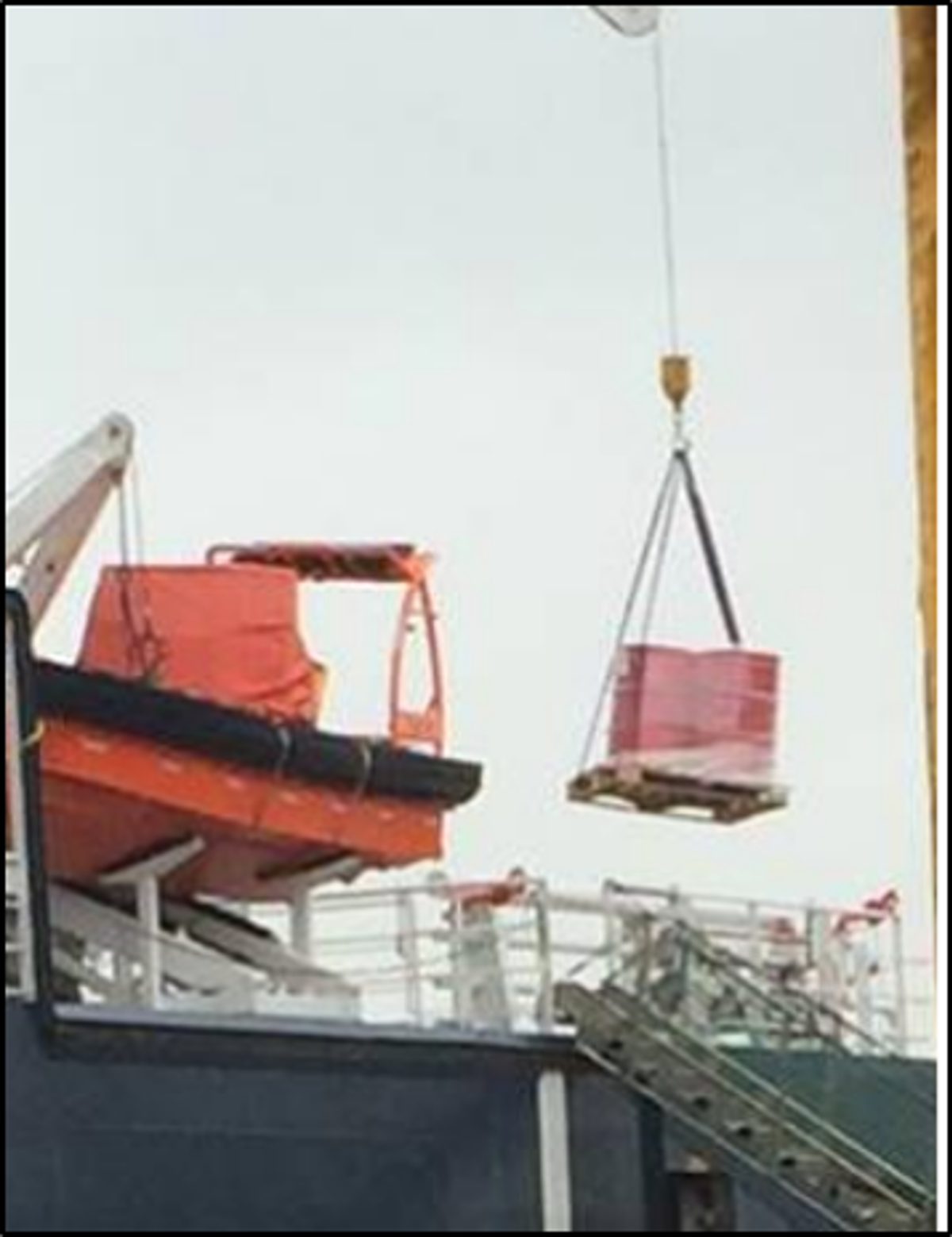Unsafe lifting operations – Potential dropped object
- Safety Flash
- Published on 13 February 2020
- Generated on 21 January 2026
- IMCA SF 05/20
- 2 minute read
Jump to:
The Marine Safety Forum (MSF) has published Safety Alert 19-15 relating to a potential dropped object during unsafe lifting operations
What happened?
An observation was recorded during a routine vessel crane lifting operation.
The lift was a pallet laden with chemical drums being lifted from the quayside onto the vessel using webbing slings.
The only method of securing was plastic film and the lift was not lifting levelly.

What went wrong?
- Significant potential existed for this lift to fail, resulting in the load falling from height.
- Slings are not considered a suitable method for lifting pallets by crane. Pallets have no safe working load (SWL) and are not designed to be lifted by crane with slings.
- Using slings to lift pallets can result in failure of the pallet structure, resulting in loss of loads.
What actions were taken?
The MSF suggests that:
- As a minimum, pallets should be secured with cargo nets to prevent loss of containment and dropped objects. Cargo nets are only to contain the load and prevent dropped objects; however, nets will not prevent structural pallet damage from sling lifts.
- Consideration should be given to the use of approved attachments (such as crane fork attachments) for the safe lifting of pallets by crane.
Members may wish to refer to:
- IMCA HSS019 Guidelines for lifting operations
Related Safety Flashes
-
IMCA SF 24/18
30 October 2018
-
-
IMCA SF 23/16
13 September 2016
IMCA Safety Flashes summarise key safety matters and incidents, allowing lessons to be more easily learnt for the benefit of the entire offshore industry.
The effectiveness of the IMCA Safety Flash system depends on the industry sharing information and so avoiding repeat incidents. Incidents are classified according to IOGP's Life Saving Rules.
All information is anonymised or sanitised, as appropriate, and warnings for graphic content included where possible.
IMCA makes every effort to ensure both the accuracy and reliability of the information shared, but is not be liable for any guidance and/or recommendation and/or statement herein contained.
The information contained in this document does not fulfil or replace any individual's or Member's legal, regulatory or other duties or obligations in respect of their operations. Individuals and Members remain solely responsible for the safe, lawful and proper conduct of their operations.
Share your safety incidents with IMCA online. Sign-up to receive Safety Flashes straight to your email.